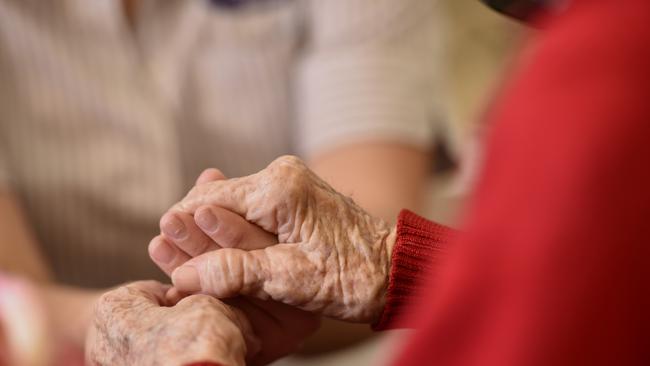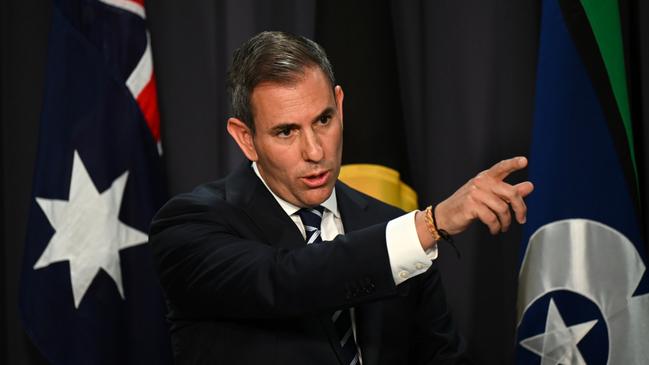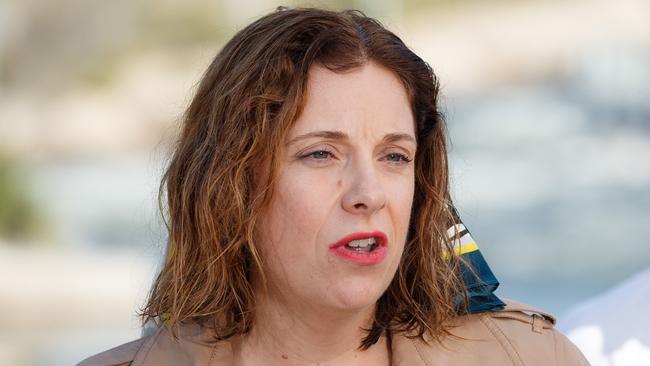Liberal backbenchers question aged care co-contributions
Coalition backbenchers are raising concerns over how additional co-contributions for wealthy older Australians paying for aged care will be calculated under legislation Labor hopes to present this week.

Coalition backbenchers are raising concerns over how co-contributions for wealthy older Australians paying for aged care will be calculated under legislation Labor hopes to present to parliament this week, revealing “little to no discussion” of the reforms in the party room so far.
The opposition is yet to announce a formal position on Labor’s legislation that seeks to implement recommendations from its Aged Care Taskforce – including that wealthier older Australians make larger co-contributions to their daily living and accommodation costs in aged care – but maintains it is still participating in “good faith” negotiations with the government.
Labor’s aged care legislation, which could be presented as early as Tuesday should the Coalition announce its position after partyroom meetings, is expected to be one of the key features of the next parliamentary sitting fortnight, along with legislation of changes to university student debt, pay rises for early childhood educators, and establishing an Independent Parliamentary Standards Commission.
Legislation enacting the government’s long-awaited privacy reforms, including a ban on doxing, is also expected to be introduced to parliament this fortnight.
While the Coalition has criticised Labor for not tabling the final version of the aged care legislation until the opposition guarantees its support, The Australian understands the government has since provided Peter Dutton with the entire 500-page bill.
Jim Chalmers on Sunday confirmed the legislation would see “a bigger contribution from people who can afford (it)” for aged care costs.
“These reforms are all about providing better services for more people in a more sustainable way without introducing a new tax or changing the treatment of the family home,” the Treasurer told ABC’s Insiders.
But Dr Chalmers would not say how much wealthier Australians would be up for, or how this would be calculated, because such detail was “subject to trying to land an agreement with the opposition”.

The Australian understands the government is not proposing a set figure or rate of increase for the co-contributions, which will instead be based on a mix of an elderly person’s super balance, whether they are a fully funded retiree, their pensioner status and the value of their home and other assets.
There will be no changes that adversely impact fully supported pensioners, while there will be additional cost for self-funded retirees.
But even among self-funded retirees, it is understood there will still be “levels” of additional costs when it comes to their contributions, based on their wealth.
Following the passing of the legislation, an online calculator is expected to be set up, which elderly Australians can use to predict the cost of their care depending on their financial situation.
The Australian revealed last month industry analysis that modelled the impact of the reforms for the average self-funded retiree paying a Residential Accommodation Deposit, which showed the additional cost would be about $49 a day, or $18,000 a year.
With the average length of stay in nursing care sitting at 2.2 years, this equates to just short of $40,000 in total for each resident.
The Australian understands negotiations over the changes that will make some people pay more for care, included in chapter four of the bill, are among the final sticking points for the Coalition, which last month was able to strike from the legislation the threat of criminal charges for providers breaching new standards.
Also of concern are a number of unsighted “instruments and rules” that will help put the changes in place.
“I’m just concerned by what the government is defining as ‘wealthy’,” one Coalition backbencher, who wished to remain anonymous, said.
“How is this going to impact partial retirees or self-funded retirees? We don’t quite know … there’s been almost no discussion in the party room.”

Another Liberal source said that while the changes had been flagged in the party room, there had not yet been “substantive discussion” on the issue because Labor had only given the opposition the full bill last week.
“The question here is one of balance,” the Liberal MP said.
“The level of resourcing we need to meet the standard of care people expect means that someone has to pay more. The question is: How do we split that more between the public and private contributions?
“And then inside the private contributions, if we’re talking about that as a subset, how do we split it up between those with means and those without, and how much of the burden is lifted, once again, by self -funded retirees?”
Andrew Wallace, whose Queensland seat of Fisher has a significant older population, said he had “some concerns around the additional co-payment” the government was seeking.
“I don’t know that the government has landed on a final figure though. We need to see that detail,” he said.
Despite the prevailing concerns over the reforms, many Liberal MPs said they believed the legislation should be passed, given a Coalition government would never be able to implement such reforms due to backlash from its base.
“The Liberal Party is pretty keen to get it sorted out … because this would be a lot more difficult for a Coalition government and aged care … needs to be made sustainable,” one Liberal MP said.
Data released this year showed half of the nation’s 2600 nursing homes are running at a loss, with industry heads calling on both major parties to implement reforms before it is too late.
Along with continuing negotiations on aged care, Labor will also seek to garner support for its Future Made in Australia legislation, which so far does not have the backing of the Greens or Coalition.
The government’s privacy reforms, to be introduced as early as Thursday, will seek to better protect Australians’ information after high-profile data breaches by hackers of companies holding large amounts of personal data, including Medicare and Optus, impacting millions of customers.
Small businesses have raised alarm over the regulatory burden new privacy laws would have on them and have demanded the cost-benefit analysis commissioned by Labor be released.








To join the conversation, please log in. Don't have an account? Register
Join the conversation, you are commenting as Logout